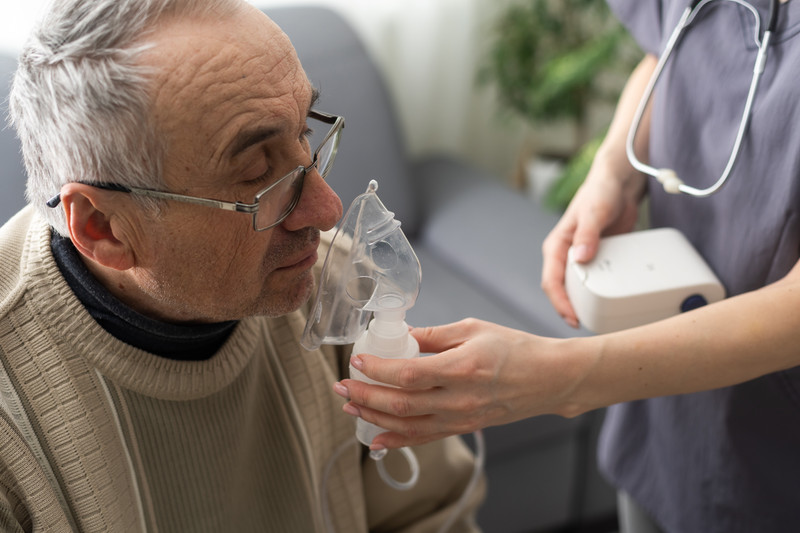Until you started and then (hopefully) finished reading this sentence, when was the last time you actually thought about your regular breathing? And have you ever pondered that the average adult takes a breath every three to five seconds, which adds up to about 22,000 times a day? That’s what we thought—it’s not something you typically think about, let alone count the seconds in between.
For almost all of us at any given moment, breathing is something that we take for granted. But for someone who is having trouble breathing or can’t even seem to catch their breath, breathing quickly becomes a precious involuntary activity. Without the ability to breathe for an extended period of time, a person doesn’t have long to live.
Breathing powers us. Our lungs fuel our bodies with life-sustaining oxygen, which is carried via our bloodstream to all our tissues and organs that permit us to walk, talk, move, and more. For anyone who has, or who has experienced, chronic obstructive pulmonary disease (COPD, a serious lung disease), breathing is top priority because it can be quite difficult, and it worsens over time. That’s certainly something for all of us to consider as November draws to a close, with November being National COPD Awareness Month.
What Causes COPD and What Does It Entail?
Chronic obstructive pulmonary disease, which is manifested in multiple forms (e.g., chronic bronchitis and emphysema) is a persistent health condition caused by damage to the lungs. Inflammation in the form of swelling and irritation inside the airways thwarts air flow into and out of the lungs, producing symptoms such as problematic breathing, an ongoing cough that brings up mucus, and the familiar wheezing sound of whistling in the lungs.
COPD is most often sourced from long-term exposure to smoke, fumes, dust, or other airborne toxins, with cigarette smoke being the most prevalent. This chronic breathing condition is a leading cause of death in America and at any given time is affects the health and quality of life of more than 16 million Americans.
Being diagnosed with COPD need not be a death sentence, but it is an urgent call for seeking immediate professional healthcare treatment. This could include pulmonary rehabilitation and counseling that teaches COPD management strategies, such as quitting smoking or, if a workplace environment poses a health risk because of airborne toxins such as chemicals, seek and demand remedies from management.
6 Natural Remedies to Help Mitigate COPD Symptoms
Supplements, herbs, and other nutrients do not replace prescribed medical treatments for COPD, but they can certainly help in managing the disease. It does this, for instance, by enhancing impaired lung function and perhaps improving muscle strength lost due to the debilitating effects of this condition. Following, in alphabetical order, are five natural remedies worth considering:
Boswellia. Practitioners of folk medicine for centuries have used the anti-inflammatory agent boswellia to help treat cough, asthma and other long-term inflammatory lung conditions.
Vitamin C. Vitamin C deficiencies have been associated with shortness of breath, mucus accumulation, and wheezing.
Calcium. Calcium can help boost lung function. It’s important to note, too, that some COPD medications have been linked to inducing loss of calcium in the body, so you might want to keep calcium handy.
Vitamin D. COPD sufferers typically are deficient in vitamin D, which reportedly can tamp down moderate to severe COPD-related flare-ups.
NAC (N-acetylcysteine). NAC is both an antioxidant and a mucolytic with a history of being able to thin and loosen mucus, like that brought up during COPD coughing spells.
Omega-3 fatty acids. Studies are ongoing, but omega-3s’ propensity for improving lung function in patients dealing with an acute lung injury can be chalked up to their anti-inflammatory attributes.
COPD is a serious chronic disease, but also one that can be carefully managed to bring back some of a patient’s quality of life lost because of this affliction. Before trying any of the natural remedies mentioned above, be sure to discuss your planned use with your personal physician or other qualified healthcare professional. They can help you avoid any conflicts with medication(s) you might be taking or other possible issues related to your body’s chemistry.

